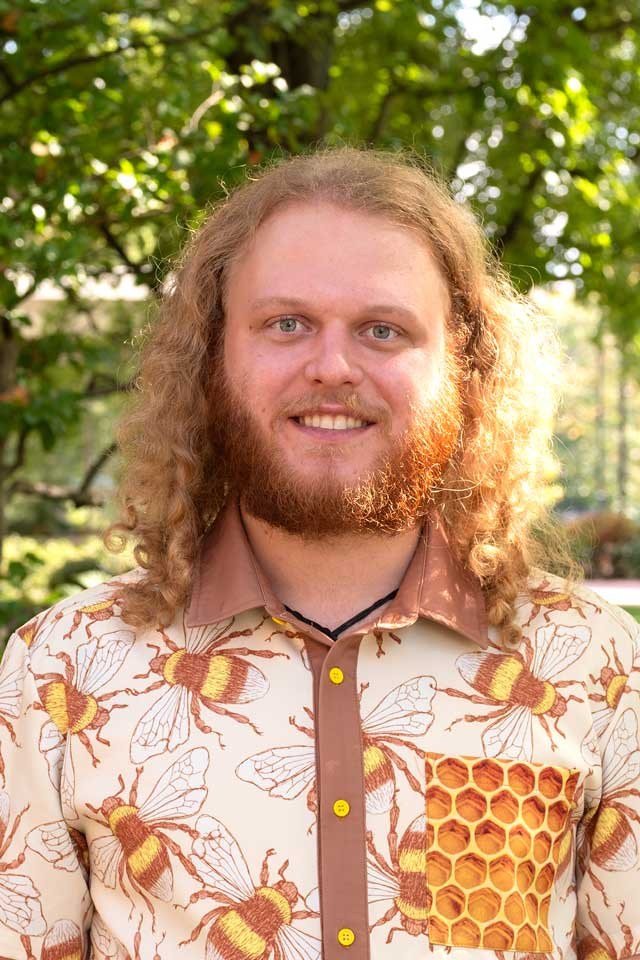This is the ninth short news article written by students, during the professional development class of Spring 2024, about each other's research.

Luke Reynolds
Student Spotlight: Luke Reynolds
By Afure Ejomah
Mushroom growers in Pennsylvania share a common problem: the mushroom phorid fly, Megaselia halterata. The mushroom phorid fly reduces crop yield by feeding on mycelium of mushrooms and vectoring diseases in mushroom growing houses. In recent years, the mushroom phorid fly has also become a significant nuisance to residential areas close to mushroom growing houses in Pennsylvania.
Luke Reynolds, an Entomology master’s student at Penn State in Professor Michael Wolfin’s research group is interested in studying if predatory mites can control the mushroom phorid fly in mushroom farms. Luke’s unique background in entomology and experience in biological control provides him with skills to help in the effort to control this pest.
According to Luke, the problem lies in the fact that the insecticides that traditionally control these larvae have been banned by the EPA because of the risks posed to human health. Now there are huge swarms of these flies and no means of controlling their larvae. Although insecticides to control the adults exist, they are expensive and labor intensive, and can be ineffective if deployed suboptimally. There are no methods to control the larvae, which feeds on the mycelium of mushrooms.
Luke hopes to harness the predatory behavior of Stratiolaelaps scimitus mites to control the mushroom phorid fly larvae in mushroom growing houses. Luke’s previous research showed that the predatory mite is very successful in controlling the mushroom phorid fly in laboratory conditions. He used a microscope camera to view and record videos of the mites feeding on the mushroom phorid fly larvae in the dirt or compost in dishes in the lab.
Now Luke will determine if the mites can control the flies in mushroom houses. Luke plans to mix varying dosages (numbers) of mites with specialized machinery into compost and then apply these compost blocks on mushroom-growing beds. The mites within the compost will feed on the larvae in the mushroom-growing beds. Sticky traps will be used to monitor adult fly emergence to determine if there are fewer adult flies when the mites are present. Luke hopes to determine the dosage of predatory mites to needed to reduce infestation levels below the damage threshold and to determine the best method for distribution of the mites mixed in compost in mushroom-growing bed in mushroom farms through his research.
For Luke, the issue of the mushroom phorid fly damaging mushrooms is a personal one. He is from a town called Kennett Square, a borough in Chester County, Pennsylvania. The borough is referred to as the “Mushroom Capital of the World” because of how important mushroom farming is to the Kennett Square community. Kennett Square holds an annual Mushroom Festival to celebrate this heritage. Luke has friends and family whose livelihood has been impacted by this pest.
If successful, these mites could lead to some thrilled farmers and families. Luke hopes that this research will bring him a step closer to achieving his dreams of leading his own research focused on IPM.
Luke Reynolds is an MSc student in the Department of Entomology at Penn State in the research group of Professor Michael Wolfin. His research is funded by the Pennsylvania Department of Agriculture Agricultural Research Grant #C940001107.

